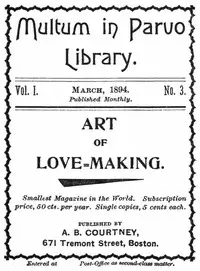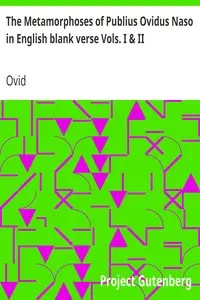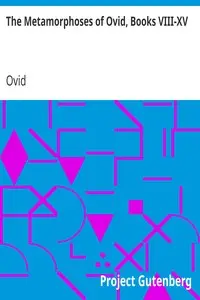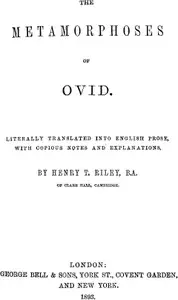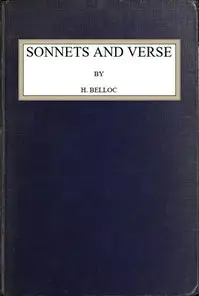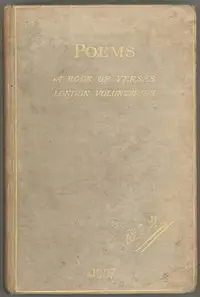"Ars Amatoria; or, The Art of Love" by Ovid is a guide written as a poem to teach men how to charm women and find love. Throughout the poem, Ovid uses humor and understanding of human relationships to show the reader how to find the right person and how to win them over. He compares the pursuit of love to steering a ship or driving horses, where skill and strategy are needed. Advice includes spotting potential partners in public and getting help from their servants, showing that love is a game of skill and timing rather than just luck.

Ars Amatoria; or, The Art Of Love Literally Translated into English Prose, with Copious Notes
By Ovid
Discover the ancient secrets of attraction as a poet unveils a playful strategy for men to conquer the art of romance.
Summary
About the AuthorPublius Ovidius Naso, known in English as Ovid, was a Roman poet who lived during the reign of Augustus. He was a younger contemporary of Virgil and Horace, with whom he is often ranked as one of the three canonical poets of Latin literature. The Imperial scholar Quintilian considered him the last of the Latin love elegists. Although Ovid enjoyed enormous popularity during his lifetime, the emperor Augustus exiled him to Tomis, the capital of the newly-organised province of Moesia, on the Black Sea, where he remained for the last nine or ten years of his life. Ovid himself attributed his banishment to a "poem and a mistake", but his reluctance to disclose specifics has resulted in much speculation among scholars.
Publius Ovidius Naso, known in English as Ovid, was a Roman poet who lived during the reign of Augustus. He was a younger contemporary of Virgil and Horace, with whom he is often ranked as one of the three canonical poets of Latin literature. The Imperial scholar Quintilian considered him the last of the Latin love elegists. Although Ovid enjoyed enormous popularity during his lifetime, the emperor Augustus exiled him to Tomis, the capital of the newly-organised province of Moesia, on the Black Sea, where he remained for the last nine or ten years of his life. Ovid himself attributed his banishment to a "poem and a mistake", but his reluctance to disclose specifics has resulted in much speculation among scholars.


